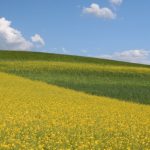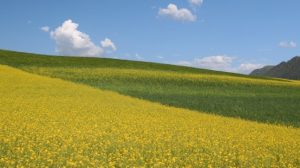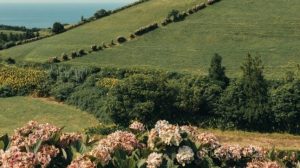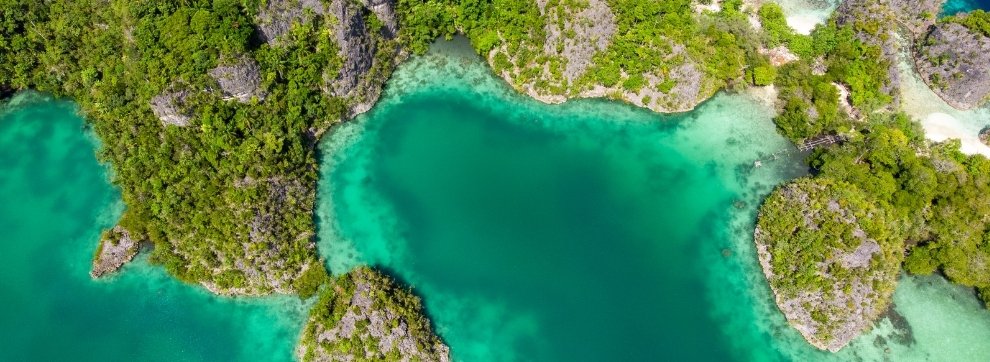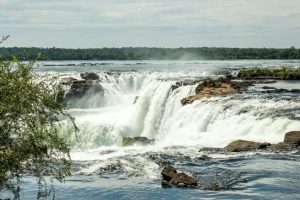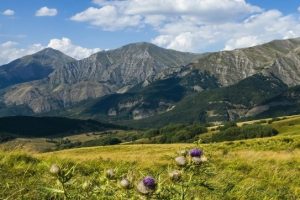Little is known about Ya’juj and Ma’juj – what race they are, their exact location and what form they appear in. There are various ahadeeth however, which categorically describes them as being corrupters of the land, and it is prophesized in both Al Qur’an and ahadeeth that they will, close to the end of time, appear on the land and cause great trouble and strife.
Many scholars have their own opinion on this matter. However, we are of the view that this is the knowledge of the unseen, and the theories of the scholars are not based on authentic or confirmed sources within ahadeeth and the Qur’an. Hence we will not be exploring the speculations of the scholars, but will take a literal approach and quote only the text in the Qur’an for the purpose of this story.
Allah gave Dhul-Qarnayn the knowledge to solve the predicament of the people there, and so he instructed them to build a gigantic wall or dam of iron between the two mountains and then pour molten copper to strengthen and increase its impenetrability.
He said, “That in which my Lord has established me is better [than what you offer], but assist me with strength; I will make between you and them a dam. Bring me sheets of iron” – until, when he had leveled [them] between the two mountain walls, he said, “Blow [with bellows],” until when he had made it [like] fire, he said, “Bring me, that I may pour over it molten copper.” So Gog and Magog were unable to pass over it, nor were they able [to effect] in it any penetration.
(Al Qur’an 18:95 – 18:97)
However, the qadr of Allah is still to pass. One day, close to the end of time, the barrier will be levelled and from there, Ya’juj and Ma’juj will be liberated and will spread great corruption and discord throughout the land.
(Al Qur’an 18:98 – 18:99)
)
Lessons to be learnt
Saying “Insha Allah”
Often, we become confident in our ability to deliver, and we attribute such abilities to our own might and strength: a casual promise, or even the undertaking to meet a deadline or attend an appointment. However, nothing in this earth happens without Allah’s will or permission. This is why, even the role model of mankind, Muhammad SAW, was reprimanded for not uttering the phrase “Insha Allah” when he gave his undertaking to explain the story of The People of the Cave and also Dhul-Qarnayn. We as Muslims, are obligated to say “Insha Allah” when promising to deliver something, for without Allah’s will, nothing can happen. How many of us have already been stuck in some unforeseen circumstance – a traffic jam, or a broken server, an illness, which took away our ability to keep to our commitment?
This is not to be confused with the “Insha Allah” carelessly uttered by many Muslims today, which has evolved into some sort of polite but totally inappropriate substitute for “no”. This is a distortion of the original intention of the phrase. “Insha Allah” is only to be used when someone intends to keep his commitment and will use his best efforts to keep his promise, but also has the humility to acknowledge that it is only Allah who can carry his commitments to fruition.
What Do We Do With Our Abilities?
The main lesson that can be learnt from the story of Dhul-Qarnayn is that all ability, might and power comes from Allah, and when one’s inclination is towards goodness, he should use those abilities to do good.
The more we are sincere in wanting to perform good deeds, the more Allah will increase our ability to spread the message, meaning such parts of our abilities that enable us to benefit others. Dhul-Qarnayn travelled extensively from one end of the earth to another, in order to spread justice, to alleviate the suffering people and to educate and advance them by spreading his knowledge to them. In doing so, he was also guided by Allah, and governed his actions accordingly to Allah’s rulings.
If we are sincere, Allah will give us the capacity as well as the victory, according to our piety, connection to Allah and faith in Allah. The purpose of Dhul-Qarnayn’s travels were not for the sake of amassing fortune and power, but to establish justice in the land and rid it of oppression. He conquered in order to spread the rule of Allah over the land. Allah gave him the knowledge and equipped him with ability and means. Dhul-Qarnayn did not waste these abilities on himself, but rather, travelled from one remote place to another to help elevate his fellow mankind in dunia and akhirah.
The story teaches us how a Muslim should be dynamic and to be a high achiever. However, the objective is a high one – not for worldly fortune, but for the empowerment and betterment of people for the sake of Allah.
If this is our goal, our first step should be to cleanse and purify the sincerity of intention in order to act in accordance with Allah’s wishes. Many of us lose sight of that objective, and by the time we graduate from college and university, our hearts are immersed in the material love of the world. We get lost in the competitive arenas of our careers, and together with it, our original objective is also lost, dunia and akhirah.
This is why the end of Surah Al Kahf talks about the purity and sincerity of intention, for without them, all good deeds are wasted.
As a final note, Allah gives each of us different abilities. Dhul-Qarnayn was a conqueror, and only a few of us have this immense ability. However, we all have different skills – some of us are persuasive talkers, some of us are wealthy, some of us are good at organizing projects, some of us have extensive knowledge of the akhirah, and some of us have extensive knowledge of the useful things in dunia (for example, medicine, engineering, life skills). When given such skills by Allah, we should not just monopolize them for our own advantage, but also use them for the betterment of others and for sabeelillah, because we will be question about it in the hereafter.
May Allah make us tools of alleviating mankind and Islam, ameen.
Source: Brought to you by Muslim Footsteps, read more here.




